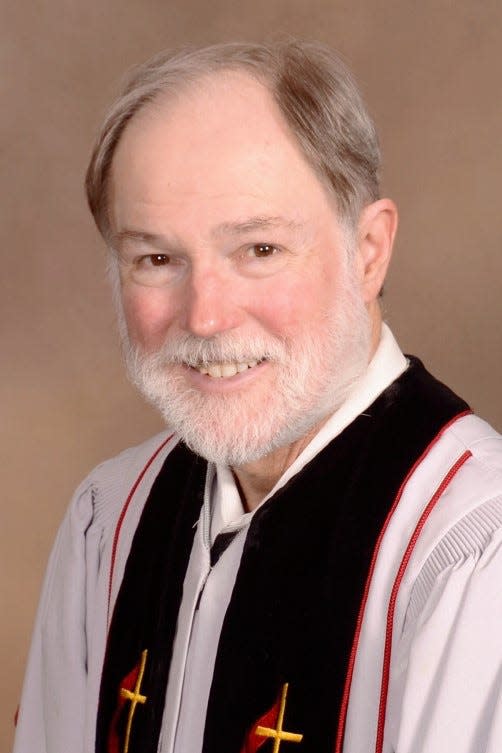Along the Way: How Kent Methodist Church confronted hate message challenge

In our age of the internet and highspeed communication, I find it easy to become confused and maybe some of you do, too.
Sometimes when I type in the word “Kent” to look up something, I find I am reading about a city in the state of Washington also called Kent.”
The confusion between the two cities recently affected the Facebook page of the United Methodist Church of Kent, Ohio, when a group in very un-Christian verbiage expressed anger at the church’s policy of mandating proof of vaccination for the COVID-19 virus to attend a worship service in person.
That, so far, is not the policy of the United Methodist Church of Kent. It strongly urges vaccinations, but does not make it an absolute requirement to attend a Sunday worship service in person.
Parties objecting to the vaccination policy vented their anger on the Facebook page of the United Methodist Church of Kent, Ohio evidently confusing the two churches, easy to do as their website addresses bear similarities.
The Rev. Dr. David Palmer referred to the mix-up in his sermon last Sunday when he said the Facebook page of his church was briefly filled with hateful messages from anonymous sources who expressed their anger in threats. One of them wished the church and its staff would “burn in hell.” One person, who found the church’s telephone number, left a voice mail calling the good pastor “despicable, lowly” plus a few other derogatory terms.
Thinking a compassionate response might help the sender if he or she needed caring attention, church personnel responded to the attacks in a Christian manner, but when the messages kept coming, Adam Alderson, business manager of the church, stopped the attacks by temporarily shutting down the ability to leave messages anonymously.
Palmer told his congregation he contacted his counterpart in Kent, Washington who indicated his church was being bombarded with hate messages regarding its policy. Palmer opted not to forward the messages his church had received saying, “It would not have helped if I had forwarded the message to the pastor at the Kent United Methodist Church in Washington and said, ‘Hey, this message was meant for you.’”
The congregation chuckled when he said that, but I know some of us then pondered at the power to harm that the internet and social media, still unregulated, are enabling.
Those sending the hate messages utilized Biblical references, one of them labeling COVID-19 vaccines as the “Mark of the Beast,” a reference to the book of Revelation.
“I can assure you the COVID-19 vaccines are not the ‘Mark of the Beast’,” Palmer said. He added that those who do get vaccinated are acting on Christian principles by trying not to spread the disease and contribute to the overloading of our hospitals.
As a matter of fact, the hospitals in Northeast Ohio are seriously burdened by the upsurge in COVID-19 cases. The number of beds occupied by those afflicted by the virus at UH Portage Medical Center a week and a half ago was nearing 50 and of those, hospital administrators said in a meeting I attended, 85 to 90 percent were patients who had not yet been vaccinated. Palmer, whose wife, Mavis, is a nurse at UH Portage, knew whereof he was speaking
Palmer alluded to comments by the Apostle Paul in the book of Colossians urging Christians to rid themselves of anger, rage, malice, slander, and abusive language and clothe themselves with compassion, kindness, humility, gentleness, patience and, above all, love.
In the superheated political conversations regarding COVID-19 and its mutations, the admonition of the Apostle Paul seems very sound to me
David E. Dix is a former publisher of the Record-Courier.
This article originally appeared on Record-Courier: Along the Way: How Kent Methodist Church confronted hate message
